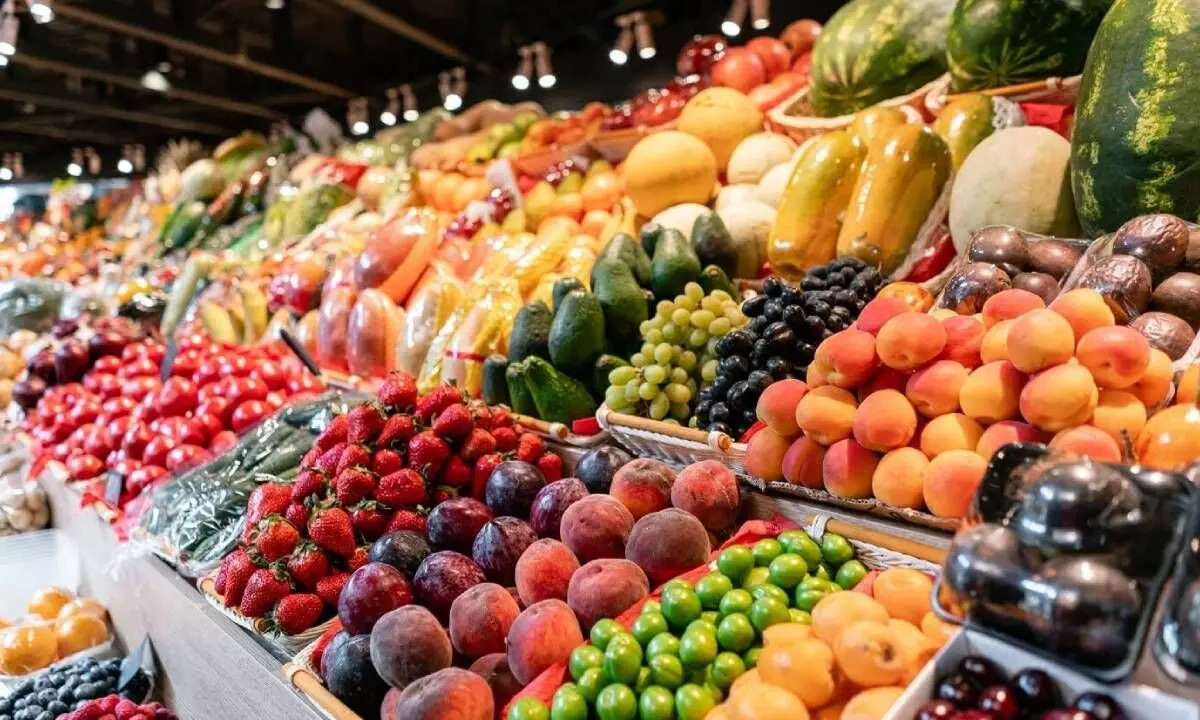FSSAI acts to make fruits safe for consumption
Food Safety and Standards Authority of India directs officials in States, UTs to monitor food business operators
image for illustrative purpose

New Delhi The Food Safety and Standards Authority of India (FSSAI) has asked the authorities in States and Union Territories (UTs) to keep strict vigil on the food business operators (FBOs) involved in the production and sale of fruits and vegetables to check pesticides and harmful chemicals in them.
The FSSAI wants the State authorities to monitor all FBOs involved in the production, refreshing, surface treatment of fruits and vegetables, official sources told Bizz Buzz. The objective is to curb the menace of excess use of pesticides during pre-marketing treatment of fruits and vegetables with pesticides.
This is in response to the various media reports regarding vegetables and fruits being sold with higher doses of pesticides and harmful chemicals than permitted in major cities across India. The central food safety authority is also aware of the Suo Moto cognizance taken by the National Human Right Commission over the subject.
This is not the first time that the FSSAI has acted to make fruits safe for consumption. In April, it had directed the food commissioners of all States and UTs to check the unauthorised use of calcium carbide for the ripening of fruits.
The FSSAI did not ban artificial ripening of fruits; it recommended a safer alternative. It allowed the use of ethylene gas at prescribed concentration levels, depending upon the crop, variety, and maturity for the artificial ripening of fruits.
Artificial ripening is done to ensure that consumers get them fresh. Ripe mangoes, for example, become soft or even rot if not consumed in a short period. So, they are transported in unripe conditions. It is at the destination market that they are artificially ripened.
Calcium carbide, masala in local parlance, is one of the harmful artificial fruit ripening agents. A provision in sub-regulation of Food Safety and Standards (Prohibition and Restriction on Sales) Regulation, 2011, proscribed it, but it is still used widely.
The FSSAI has also urged State and UT authorities to conduct awareness building measures through information, education, and communication (IEC) activities under the Eat Right India Initiative at all levels, the sources said.

